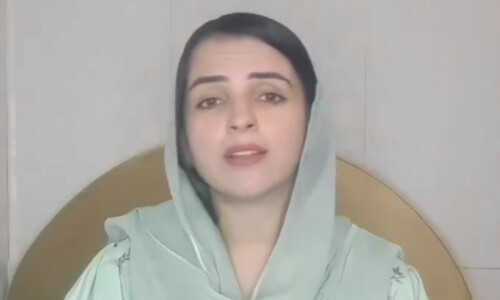PESHAWAR: A Peshawar High Court bench on Wednesday struck down the imported cotton cess imposed on textile mills in Khyber Pakhtunkhwa declaring it illegal for violating the Cotton Cess Act, 1923.
Justice Waqar Ahmad Seth and Justice Mohammad Ghazanfar Khan issued the orders in this respect by accepting a petition jointly filed by Mezan Textile Mills and five other such industrial units to seek the court’s orders to declare illegal and unconstitutional the imposition of the cess on imported cotton by amending the relevant rules.
The bench ruled that the cotton cess couldn’t be imposed on imported cotton until the law concerned was changed.
The respondents in the petition were the ministry of textile industry, Directorate of Cotton Cess Management, and Pakistan Central Cotton Committee.
Rules tax in question can’t be imposed without changing relevant law
Qazi Ghulam Dastagir, lawyer for the petitioners, said his clients were engaged in manufacturing and value addition of textile, yarns and allied products in various industrial areas of Khyber Pakhtunkhwa.
He added that the petitioners in order to run their units used cotton as raw material produced locally or imported.
Mr Dastagir said under Section 3 of the Cotton Cess Act, 1923, the cess should be levied on all cotton exported from Pakistan or consumed in mills and in the said section the words ‘imported cotton’ were not used.
He said in 2012, the federal government on order of the prime minister repealed the relevant Cotton Cess Rules 1950 by introducing new rules. In the light of the new rules, he pointed out that cess was also levied on imported cotton at rate of Rs 100 per bale of cotton.
He argued that no tax, cess or surcharge could be levied through rules or subordinate legislation when the same was not given in the parent law and therefore, that cess was illegal.
The lawyer said as per precedents, the cess was like an excise duty and as per law an excise duty could not be imposed on imported items including raw material.
He added that only parliament was competent to amend the relevant law for imposing the controversial cess on imported raw material.
Mr Dastagir said the amount recovered through cotton cess was utilised on research on cotton, which had now been a provincial subject after the passage of the Constitution (Eighteenth Amendment) Act, 2010.
He added that the concerned research centre was situated at Multan, which was a cotton producing area.
He said the impugned cess had no benefit to the mills in Khyber Pakhtunkhwa.
He added that the petitioners had already been running their mills amidst worst law and order situation in the province and through the impugned cess they had further been overburdened.
The lawyer appearing for the federal government insisted initially, the government had given exemption to imported cotton in levy of cotton cess but later the exemption was withdrawn through amendment to the rules.
He added that it was within the powers of the prime minister to make amendments to the rules to extend the scope of the said cess.
When the petitioners had challenged the imposition of that cess, the high court disposed the petition asking them to formally plead their case with the federal government.
However, when their plea was not accepted by the government, the petitioners moved the high court again.
In May last year, the high court had stayed the collection of cotton cess from textile mills in the province.
Published in Dawn, March 2nd, 2017














































Dear visitor, the comments section is undergoing an overhaul and will return soon.